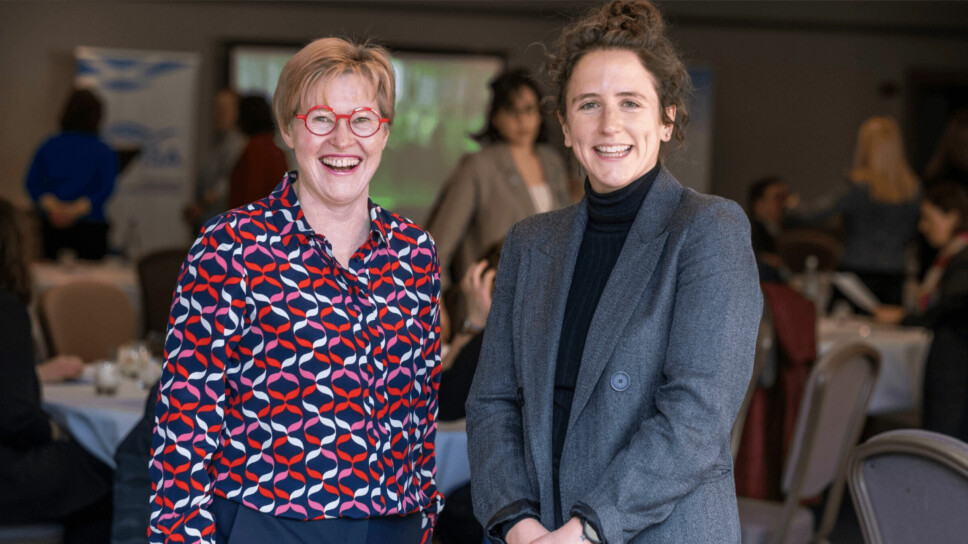
Looking back, thinking ahead: Heather Jones
Fish Farming Expert has asked individuals connected to the salmon farming industry about their year, and what they hope for in 2023. We continue the series with Heather Jones, chief executive of the Stirling-based Sustainable Aquaculture Innovation Centre (SAIC).
What have been the highlights for you professionally in 2022?
International collaboration was an important theme for 2022. SAIC has seen more of this than ever before and it has been encouraging to see other nations looking towards Scotland as an example of innovation best practice. Between the International Lumpfish Conference and the Global HAB (harmful algal blooms) Workshop – both attended by experts from Wales, Ireland, Iceland, Norway, the Faroe Islands, Canada and more – and other sessions SAIC has been invited to contribute to, it is positive to see increased collaboration across borders.
This year I also finalised my Master’s dissertation research, which includes a new definition of a sustainable approach to UK finfish farming. This was developed following 35 hours of interviews with dozens of aquaculture experts and stakeholders with a deep knowledge of aquaculture from national to global scale, and could underpin a sustainable future for the sector. The SAIC board has recently agreed to adopt the new definition as the anchor around which we will build the innovation centre’s future.
We want to see the knowledge gained through research being applied by all involved in seafood production – including regulators ... the big opportunity lies
in shifting from development to adoption.
Heather Jones
What are the most significant challenges and opportunities for your organisation in the coming year?
SAIC has supported innovation projects over the year covering a range of areas, from the environment to fish health. Next year we want to see the knowledge gained through research being applied by all involved in seafood production – including regulators. Examples like Tritonia’s 3D mapping of the hard-to-reach seabed can provide an extra level of confidence and reassurance when it comes to the environmental impact of fish farming. The big opportunity lies in shifting from development to adoption.
What do you see as the most significant challenges for the salmonid farming industry in Scotland and globally in 2023?
Warmer waters causing algal plant or zooplankton blooms has been one of the biggest emerging challenges this year, and global warming makes it an ongoing concern. Harmful blooms can impact all animals and plants in the natural ecosystem – not just seafood – but for aquaculture producers the onus lies on developing new tools and systems to better understand these threats.
Early warning technology, as well as increased knowledge to help spot trends and patterns, will enable seafood farmers to respond as quickly as possible to protect the health and welfare of their fish. Upskilling is also key to this across all areas of the sector.






















































